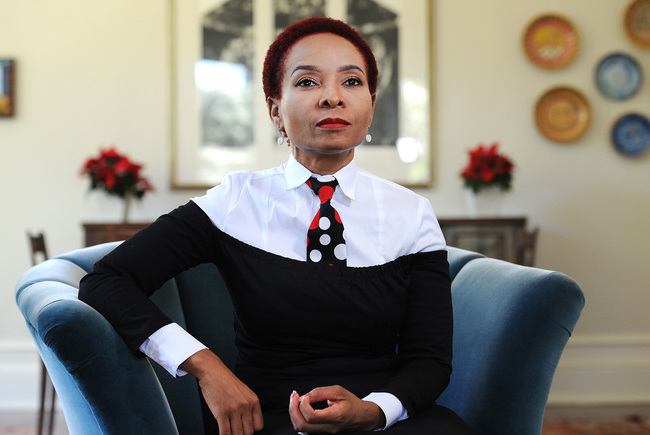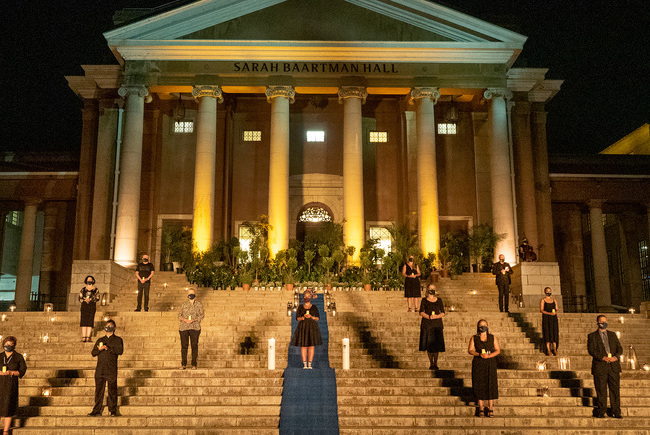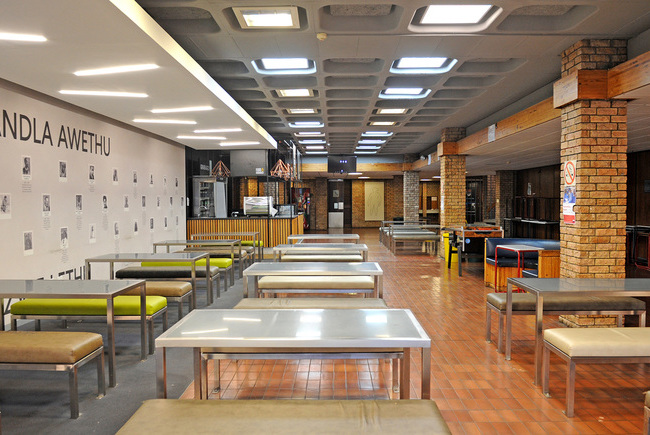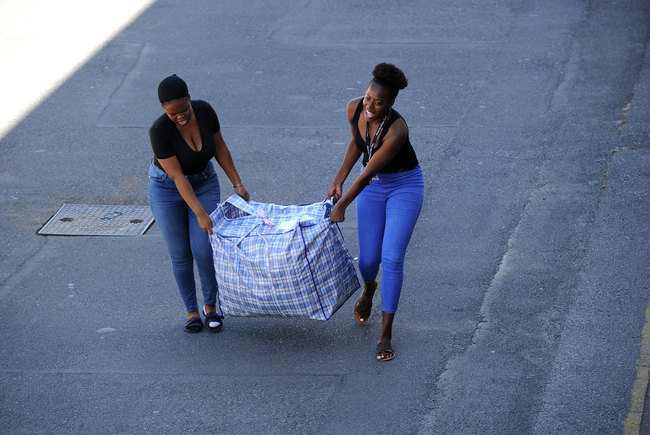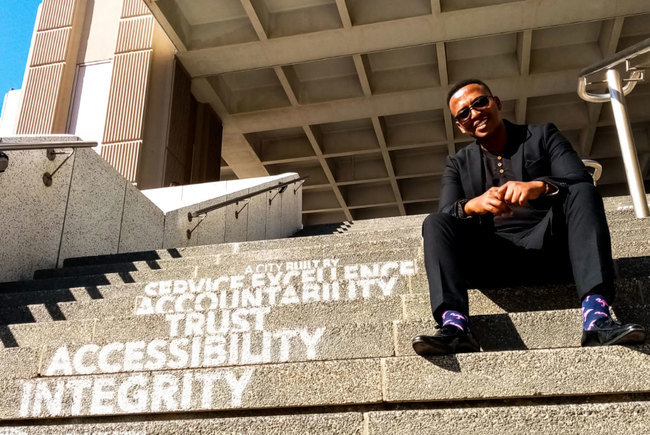Help for the elderly continues during lockdown
27 March 2020 | Story Carla Bernardo. Photos Pexels. Read time 4 min.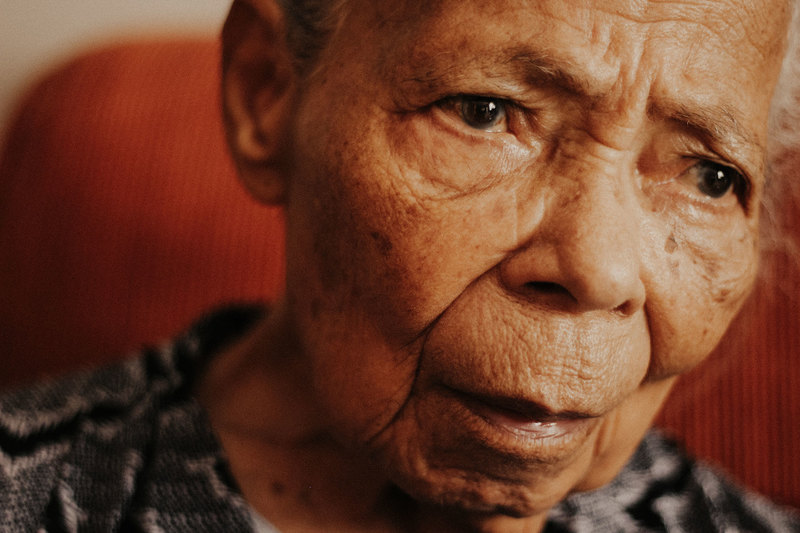
UCT News spoke to business science student Kate Charter about Cape Town Against Corona – the volunteer group she started to assist elderly people in the city during the coronavirus outbreak as they are at a significantly higher risk of complications should they contract the disease.
Amid the pandemic, Charter’s work, and the work of the volunteers who have joined her, is a shining example of solidarity and humanity in action.
When asked if any other University of Cape Town (UCT) staff and students had volunteered their services, a special mention was Dr Leon Geffen, an honorary senior lecturer in the Division of Geriatric Medicine with the Albertina & Walter Sisulu Institute of Ageing in Africa and the executive director of the Samson Institute For Ageing Research (SIFAR).
“He has offered me so much help and support, from having the team at SIFAR develop online databases for my pairing of volunteers and elderly, to putting me in contact with those in the Cape Town community who could help spread the word of the organisation and offer me the best advice going forward,” said Charter.
She added that there have been UCT students who have signed up, but she is not able to provide their names yet.
Carla Bernardo (CB): Why did you start Cape Town Against Corona?
Kate Charter (KC): I was motivated by a wish to use my time away from university to do something productive that would bring about a positive from a very troublesome situation. I came across a similar organisation (now partnering with us) called Shopping Angels in the United States (US) and found nothing had been set up in South Africa. I just took the initiative and set up Cape Town Against Corona.
CB: What has been the response thus far? From calls for volunteers and donations to feedback online?
KC: The response has been fantastic! In terms of volunteers, we had over 150 sign up within two days of starting the initiative in mid-March, and it grows every day. I have also had fantastic help offered to me by companies in the city, offering anything from marketing help to research and database development – sophisticated systems and processes I otherwise would not have been able to develop. And I never asked for donations but have been offered regardless.
CB: With the lockdown happening, is there any way we can continue supporting the elderly? Will the group evolve to do so?
CB: How many elderly people have you managed to assist? What form has this assistance taken?
KC: It is difficult to say how many exactly we have assisted as we have also helped other organisations for the elderly in providing their services. For example, we helped Meals on Wheels to deliver 500 meals to the elderly around Cape Town [on Thursday, 26 March]. Some volunteers have also developed relationships with the elderly and therefore take responsibility to deliver to them without even going through the initiative. This is exactly what I wanted though, for the Cape Town community to come together and look out for each other; the organisation just being a platform to help this connection happen.
KC: Yes, we will continue to operate, as has our partner organisation in the US. I am currently in the process of having an identity card developed for volunteers, which they can show to authorities if they question what they are doing. However, in the meantime, volunteers will only be paired with the elderly within their area to avoid complications.
If you would like to get involved, contact Charter on capetownagainstcovid19@gmail.com and follow the group on Facebook.
 This work is licensed under a Creative Commons Attribution-NoDerivatives 4.0 International License.
This work is licensed under a Creative Commons Attribution-NoDerivatives 4.0 International License.
Please view the republishing articles page for more information.
UCT’s response to COVID-19 in 2021
COVID-19 is a global pandemic that caused President Cyril Ramaphosa to declare a national disaster in South Africa on 15 March 2020 and to implement a national lockdown from 26 March 2020.
UCT is taking the threat of infection in our university community extremely seriously, and this page will be updated regularly with the latest COVID-19 information. Please note that the information on this page is subject to change depending on current lockdown regulations.
Commemorating a year of COVID-19
At midnight on 26 March 2020, South African went into the first nationwide hard lockdown. A year later, we remember those who have died and those who have been affected by COVID-19, as well as the pandemic’s effects across society and campus. We are especially grateful for the front-line health workers who have done so much for so many.
Frequently asked questions
In an email to the UCT community, Vice-Chancellor Professor Mamokgethi Phakeng said:
“COVID-19, caused by the virus SARS-CoV-2, is a rapidly changing epidemic. [...] Information [...] will be updated as and when new information becomes available.”
We are continuing to monitor the situation and we will be updating the UCT community regularly – as and when there are further updates. If you are concerned or need more information, students can contact the Student Wellness Service on 021 650 5620 or 021 650 1271 (after hours), while staff can contact 021 650 5685.





